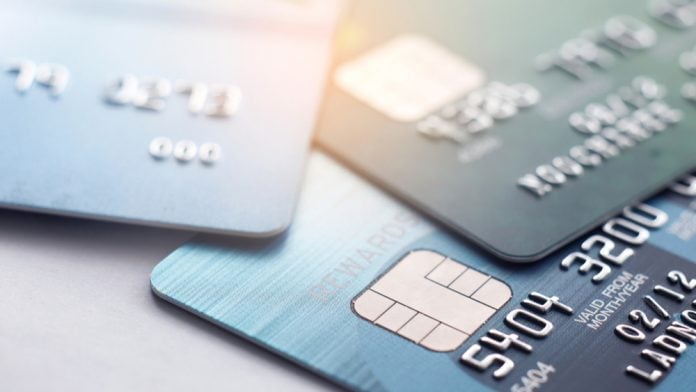GamCare has published a report with recommendations on how to improve bank gambling blocks across the customer journey, including raising awareness of such tools among consumers.
The research comes as part of GamCare’s Gambling Related Financial Harm programme, a cross-sector initiative designed to bring together relevant industries across finance and gambling to “share knowledge, develop resources, and enable organisations to help customers affected by financial harms as early as possible”.
For the GRFH programme, GamCare hosted a virtual workshop back in March with 67 attendees to analyse “how bank gambling blocks can be improved to better support vulnerable clients experiencing gambling harms, and the opportunities for banks to go beyond the blocking tool to support those affected”.
Speakers across the event included representatives from the Financial Ombudsman Service, Behavioural Insights Team, TSB Bank, the Betting and Gaming Council and a lived experience speaker.
GamCare also added that many people who contacted them for support mentioned that while gambling blocks are vital in their recovery, “they learned about the blocks only after their gambling escalated”.
Jonathan, who has lived experience of gambling harm, said: “The gambling block offered by my bank has been a key pillar in my recovery, but more publicity is needed to raise awareness of bank gambling blocks, especially amongst those struggling with their gambling.
“Having this block in place, coupled with self-exclusion from online gambling, gives me a breathing space and a sense of security, especially when big sporting events are on.”
GamCare’s report highlighted several key insights and recommendations about improving bank gambling blocks, split into five categories:
- Awareness of gambling management tools.
- Turning the gambling block on.
- Turning the gambling block off.
- Addressing gambling block loopholes.
- Additional gambling support for vulnerable customers.
Concerning raising awareness of gambling tools, GamCare recommended that banks could proactively tell customers about gambling support tools, especially if their account has already been marked as vulnerable.
The research also recommended that the financial services industry should introduce gambling block media campaigns, make gambling management tools easily accessible, train frontline staff in discussing such tools and helping customers activate blocks, and standardise the naming of gambling blocks across the industry.
“Our analysis of bank gambling tools shows that gambling blocks have inconsistent naming conventions across different banking apps,” noted Deelan Maru of the Behavioural Insights Team.
“For example, one bank may call it ‘card freeze’, whilst another would place it under ‘merchant control’ or ‘restriction’ settings – ultimately causing ambiguity and confusion for the consumer.
“Offering these tools in intuitive locations and adopting consistent naming across the finance sector could help drive awareness and adoption of gambling management tools, ensuring more vulnerable customers are protected from gambling harms.”
For turning the gambling block on, the report recommended that banks should reassure customers that their usage won’t impact their credit file or future applications, as well as explain how blocks work and how they can be personalised.
Banks are also being encouraged to ask why customers are turning the block on, and when done so, routinely refer and make customers aware of external gambling support services such as TalkBanStop via a pop-up message or follow-up email when the block is activated.
For turning the block off, GamCare’s report recommends that blocks should only be turned off manually by a customer, not time out after a certain period, and are carried over to a new card.
It was also suggested that banks should offer a range of cooling-off periods, a permanent block for the most vulnerable, more positive friction (customer support chat/call) before a block can be disabled to give customers time to reconsider, as well as be aware of customers toggling blocks on and off as it could be an indication of compulsive behaviour.
In addressing gambling block loopholes, GamCare’s report recommended that banks should have blocks active when a card is within an e-wallet/mobile wallet, explore ways to stop transactions to unlicensed/overseas operators and have a simple mechanism in place for customers to report when a block isn’t working correctly.
Banks were also asked to report merchants where a block fails to payment providers, card schemes and the UK Gambling Commission.
A BGC representative added that a registry containing bank account details for their members has recently been launched, which, when the data is part of their system, can help banks stop payments and transfers to gambling companies faster when a gambling block is in place.
Moreover, banks were also provided with recommendations for additional gambling support to vulnerable customers, including allowing customers to set gambling spending limits, additional gambling management tools/support training to frontline staff, communication about other gambling support services, and warm referrals to the National Gambling Helpline.
Further guidance included banks considering applying a block automatically when an account is overdrawn, a separation of gambling spend from other transactions in mobile app statements, and further understanding a customer’s gambling journey to block other transactions that could lead to harm.
In addition, banks were also recommended to allow customers to block themselves from lending products, offer to limit a customer’s ATM withdrawals to stop them from using cash at land-based venues, and block transactions that can cause similar harm as gambling.
Financial Ombudsman Service speakers also encouraged banks to “continuously test and monitor gambling management tools” and “look beyond the gambling block to explore other support options” that can help protect vulnerable customers.
GamCare’s full report on how to improve bank gambling blocks can be found here.










